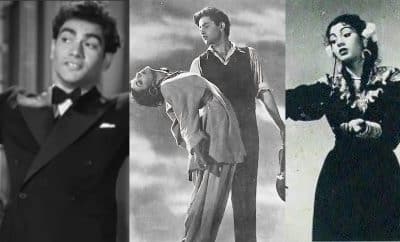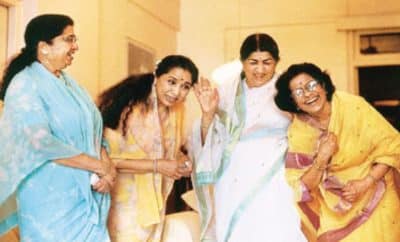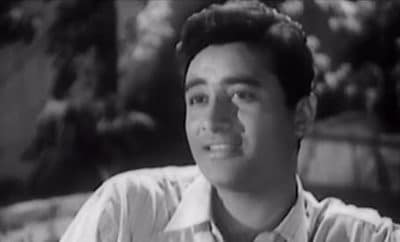Legends
The Musical Craftsman – Shankar (Shankar – Jaikishan)
Shankar Singh Raghuvanshi was born on 15 October 1922. Together with Jaikishan Dayabhai Panchal, he was one half of the duo Shankar-Jaikishan, a leading music director pair of the Hindi film industry in the 1950s and 1960s. Even after Jaikishan’s death at a rather young age in 1971, Shankar continued to use the name of Shankar-Jaikishan in films. He died on 26 April 1987. Shankar spent much of his childhood in Hyderabad. He learned the tabla and other instruments and was a student of the musicians Baba Nasir Khansahib and Khawaja Khurshid Anwar. He was an expert percussionist. He learnt the fundamentals of film music from the first music duo Husnlal-Bhagatram.
Raj Kapoor once heard Shankar sing one of his compositions,”Ambuva ka ped hai, wahi munder hai, aaja more baalama ab kaahe ki der hai….” He recognised the flash of genius & invited him to compose music for Barsaat. Shankar introduced Jaikishan as his partner.
Shankar and Jaikishan reportedly first met when they were both waiting outside a film director’s office. They soon became collaborators and helped in composing music for Prithvi Theatres, which was founded by the renowned actor Prithviraj Kapoor. In the years to follow, Shankar-Jaikishan became the favourite music directors of Prithviraj’s son, the legendary actor-director Raj Kapoor.
Both the music directors composed independently. They never interfered in each other’s works. The duo together with lyricists Shailendra & Hasrat formed an unbeatable team. With them started a new era in the Hindi film music. While background music was Jaikishan’s strength, Shankar was good at song compositions. He was a very good pianist too. The duo were commercial geniuses in addition to be wonderfully God-blessed on music. Shankar-Jaikishan were the pioneers in establishing the role of the orchestra in song compositions as a medium to express and enhance the meanings and feelings of songs rather than using it just as a filler as per the prevalent practice before their advent on the scene. Between the two, Shankar was the senior partner and hence, he would usually arrange the orchestra, even for Jaikishan’s songs. There was a gentleman’s agreement between them for not identifying the actual composer of the song.
They made a significant contribution in promoting Indian classical music throughout their career. It was their established practice to have at least one song in a movie based on semi-classical style. These included songs like `Jhanak-jhanak tori baje payaliya’ (Mere Huzoor), `Chham chham baje re payaliya’ (Jane-anjane), `Radhike tune bansari churayi’ (Beti Bete), `Manmohana bade jhoothe’ (old `Seema’), `Koi matwala aya mere dware’ (Love in Tokyo), `Ajahu na ayae baalma, sawan beeta jaye’ (Sanjh aur Savera), `Lapak jhpak tu aa re badarwa’ (Boot polish), `Ye barkha bahar sautaniya ke dwar’ (Mayur pankh), `Re man sur mein ga’ (Lal pathar), `Sooni sooni sans ke sitar par’ (Naina), `Kate na kate raina’ (Mera naam joker) and numerous others. Their music in `Basant Bahar’ and Amrapali both of which had every song based upon Indian classical music.
For millions of fans of Hindi film music, Shankar-Jaikishan remain alive through their unforgettable music.
We share here the Jaimala Programme where Shankar(of Shankar Jaikishan) team is speaking about his association with Jaikishan, Raj Kapoor, Shailendra and Lata Mangeshkar. This programme was recorded in 1976.




Lakshmi
September 21, 2018 at 11:07 pm
Shankar Jaikishan’s contribution to the entertainment industry and their fundraising efforts to support good causes is matchless. There have never been or ever will be another music composer like SJ.